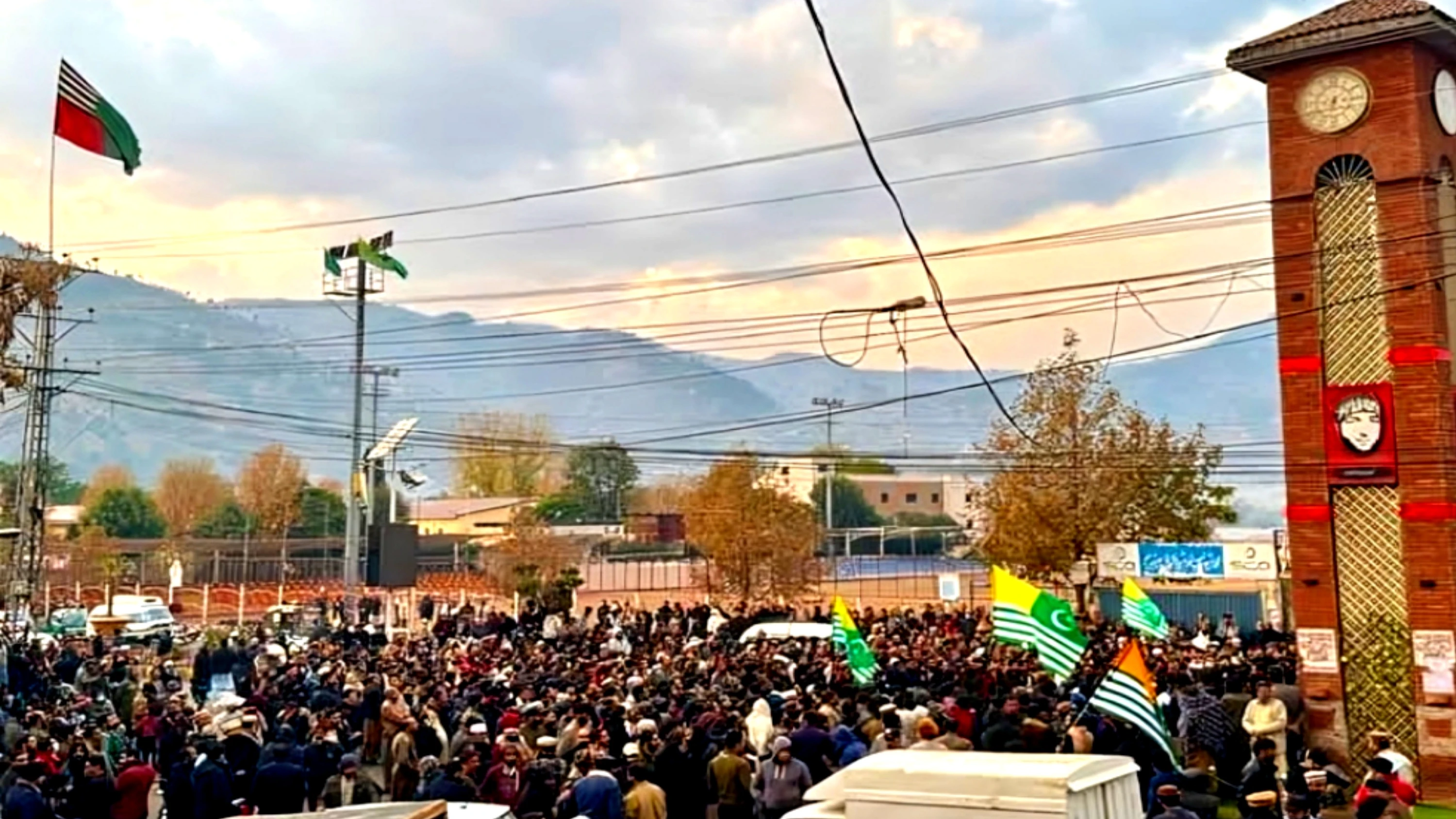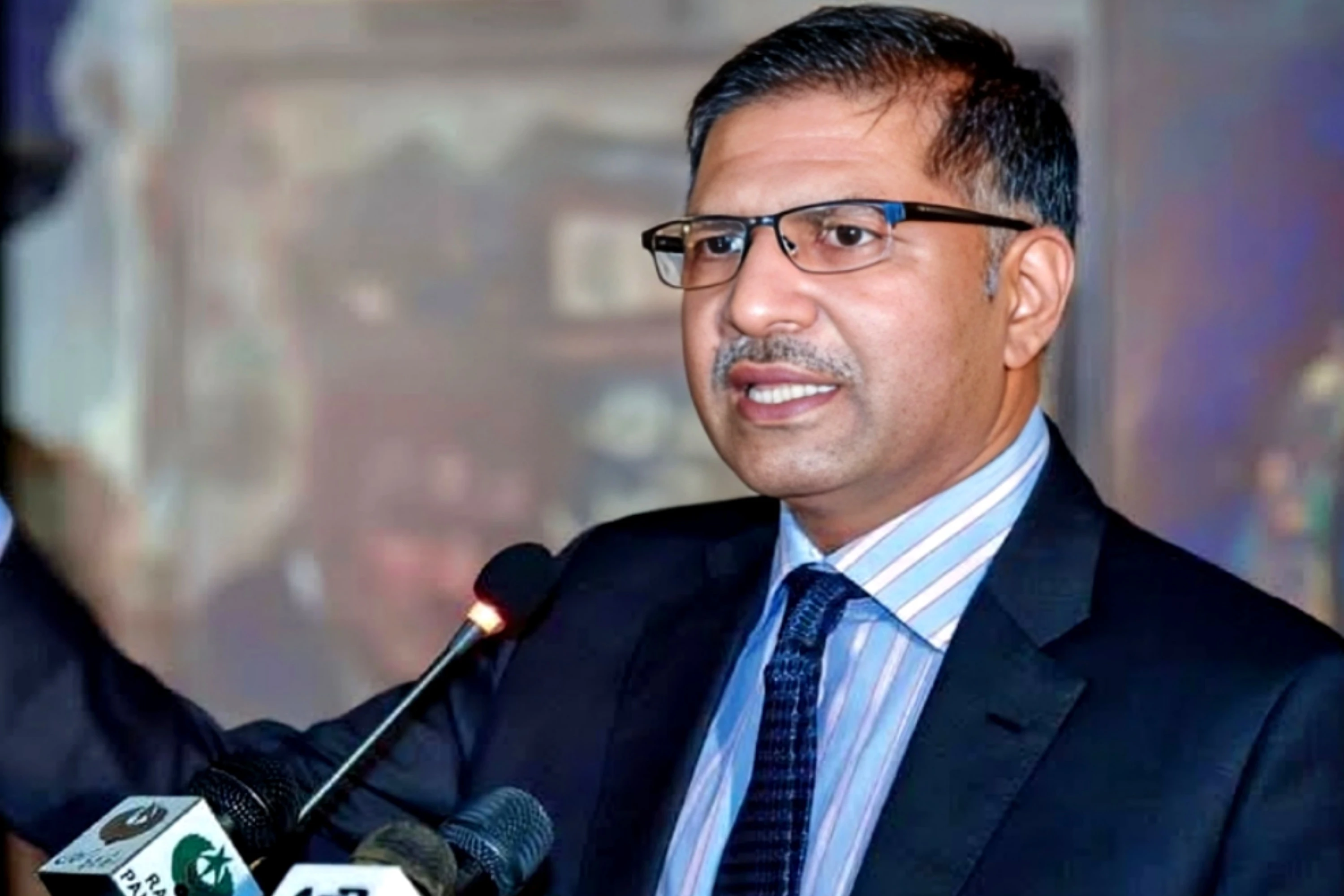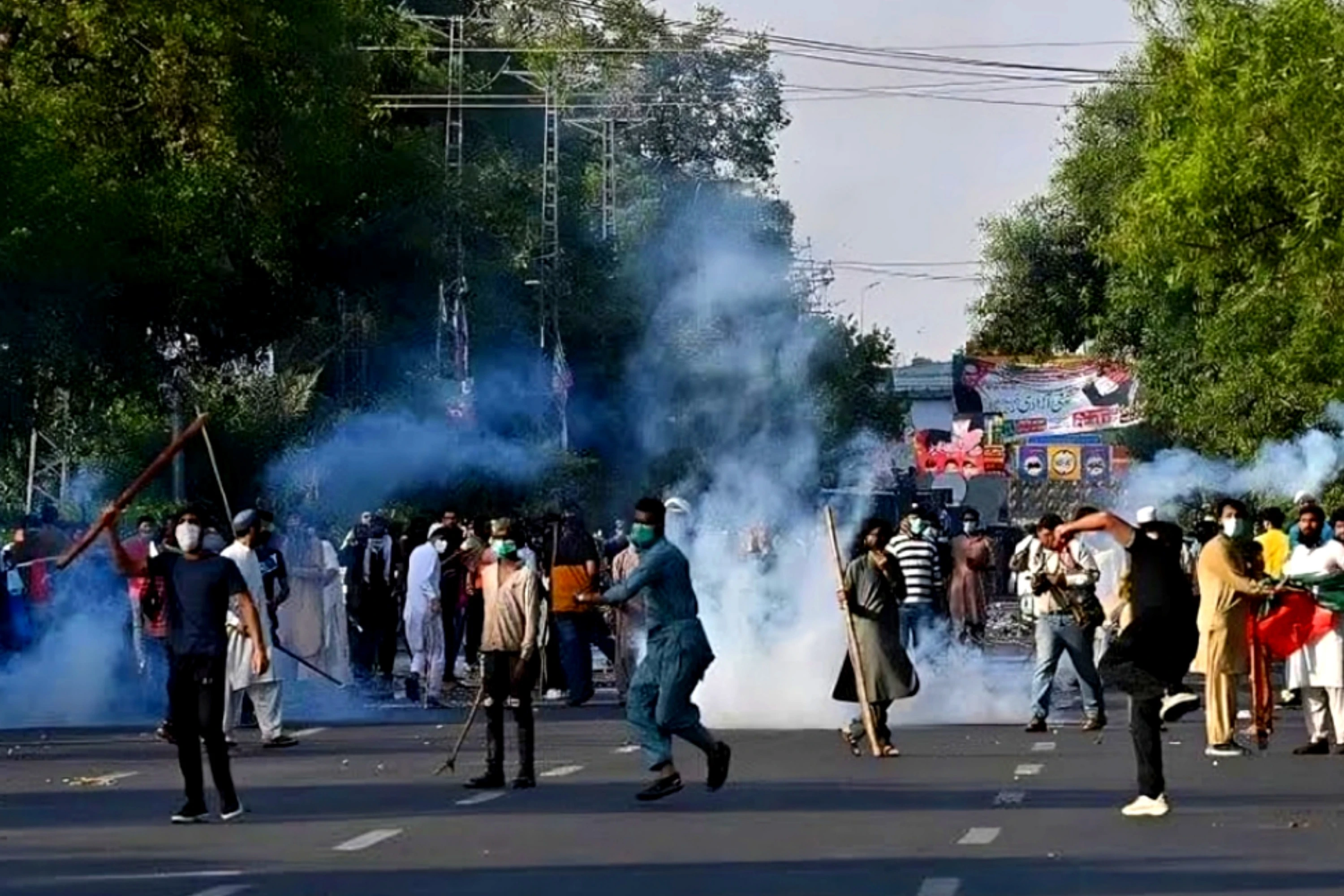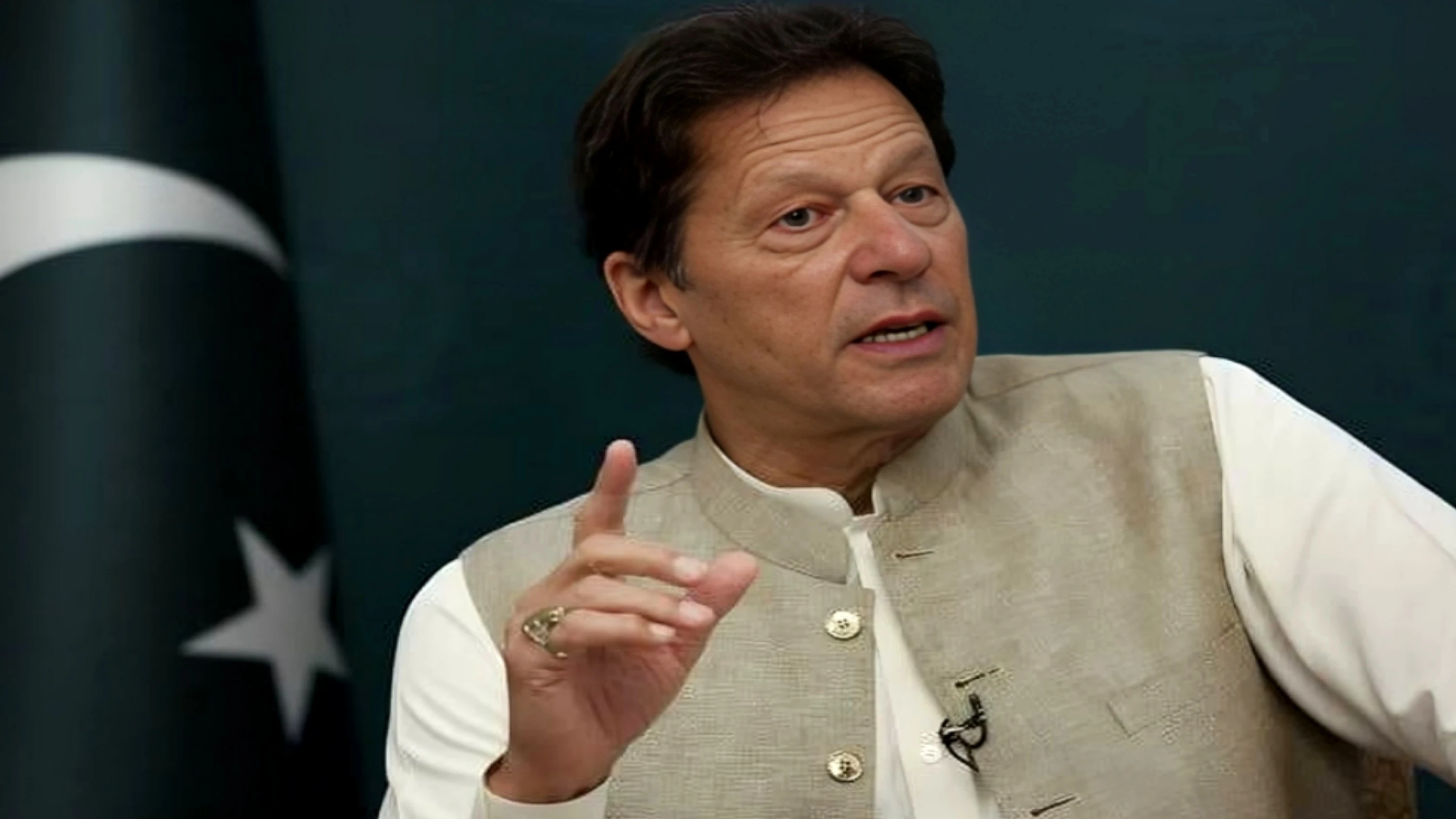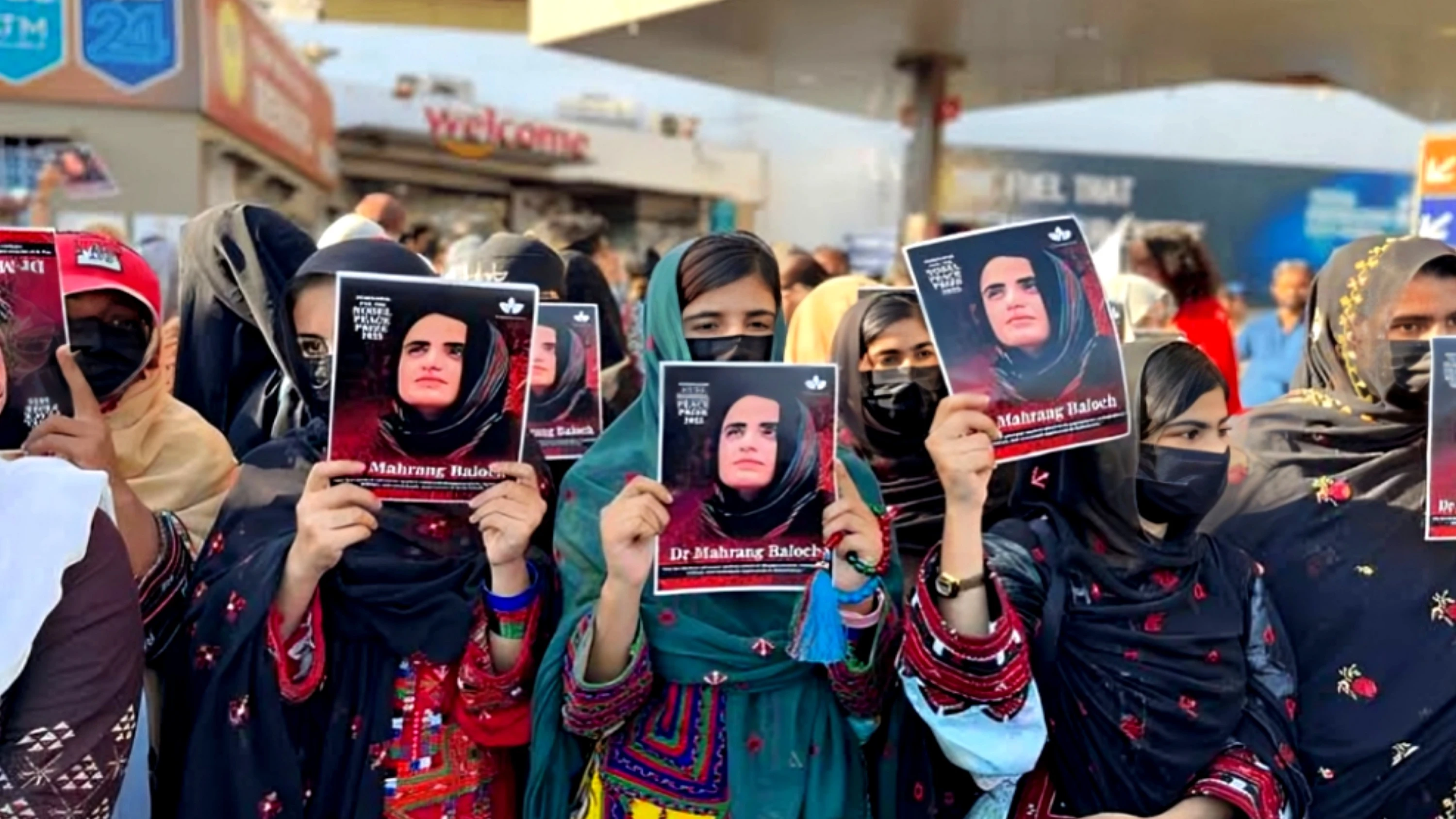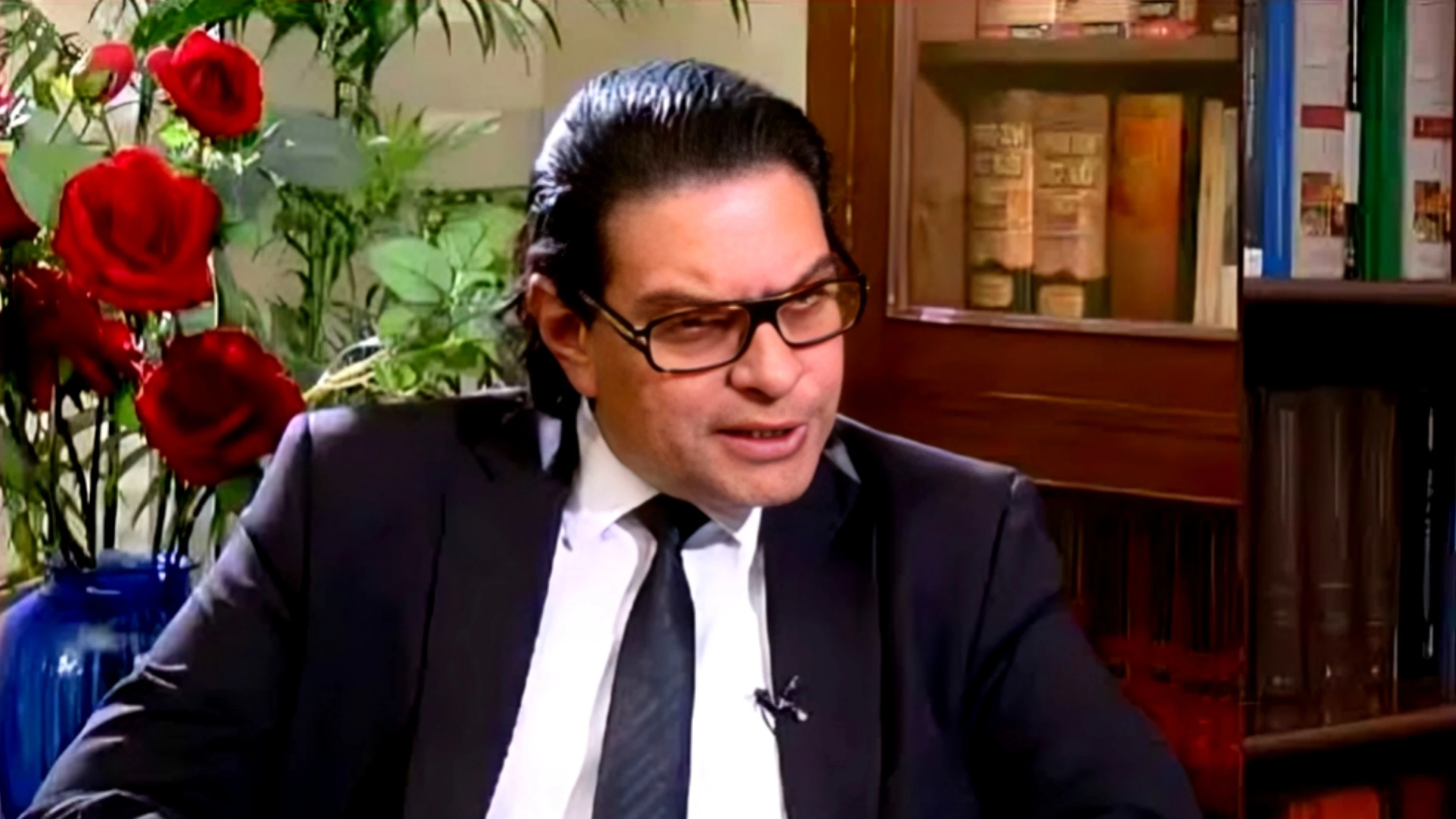Muzaffarabad: A civil society alliance campaigning for public rights in Pakistan-administrated Kashmir has issued an ultimatum to the regional government, demanding implementation of their “Charter of Demands” by June 8, despite Eid-ul-Adha likely falling on June 7. The alliance warned of launching a large-scale public movement if the government fails to act.
The announcement was made by Shaukat Nawaz Mir, a prominent leader of the Jammu Kashmir Joint Awami Action Committee (JKJAAC), during a major rally held Sunday morning at Lal Chowk, Muzaffarabad. The rally, titled “Martyrs of Jammu & Kashmir Conference and Public Rights,” began Saturday afternoon and continued into early Sunday morning, drawing thousands of participants from across the region.
Over two dozen speakers, including core committee members of JKJAAC, addressed the emotionally charged crowd through the night. Local hotels and business associations provided free lodging and meals to participants. The event concluded peacefully, much to the relief of local administration.
The 13-point declaration read out by Mir covered issues ranging from internal governance and the Kashmir conflict to concerns over the potential for nuclear war in South Asia. The declaration emphasized that sustainable peace between India and Pakistan—and in the region at large—was impossible without a resolution of the Kashmir dispute in accordance with the wishes of the Kashmiri people.
It urged the international community to ensure a peaceful and lasting solution to the Kashmir issue, respecting the collective will of Kashmiris and their inalienable right to self-determination under the UN Charter. The statement warned that any decision imposed against the will of the Kashmiri people or a forced war in the region would justify the people of the divided former state of Jammu and Kashmir to peacefully dismantle the so-called “bloody” Line of Control (LoC).
Expressing deep concern over the threat of nuclear conflict between India and Pakistan, the declaration appealed to the people of South Asian countries—including India, Pakistan, Bangladesh, Sri Lanka, Nepal, Bhutan, Maldives, Afghanistan, and Iran—to support the Kashmiris’ right to self-determination to avoid collateral damage from any future conflict.
The declaration also demanded the release of prominent resistance leader Yasin Malik and other political prisoners held in Indian jails, condemned enforced disappearances in Pakistan-administrated Kashmir, and the arrest of political activists in Gilgit-Baltistan.
JKJAAC warned the P-A-K government to implement a previously agreed 10-point charter by June 8 or face a renewed mass movement, the strategy for which would be announced at a representative gathering in Mirpur Division.
Mir rejected allegations by P-A-K Prime Minister Chaudhry Anwar-ul-Haq accusing the movement of receiving Indian funding, calling them baseless and malicious. He clarified that the campaign was funded by local residents and overseas Kashmiris, with full transparency evident on social media.
A new 16-point charter, formally approved on May 21 during a core committee meeting in Dheerkot (Bagh district), will now accompany the earlier demands. The additional demands include:
• Free and equal access to education and healthcare
• Employment opportunities
• Establishment of an international airport in P-A-K
• Provision of clean drinking and irrigation water
• Construction of Taobat-Bhimber Expressway
• Eradication of corruption, bribery, and nepotism in public institutions
• Interest-free loans for youth
• Regulation of exploitative mobile companies
• Quotas and financial aid for persons with disabilities
• Tax relief
Also included are judicial reforms, transparent recruitment, timely hearings, and judicial accountability to safeguard public rights.
The declaration strongly condemned ongoing violations of Article 52-C of the Interim Constitution and a 2019 P-A-K High Court ruling concerning hydropower resources, calling these violations detrimental to the rule of law.
One significant demand was the abolition of 12 legislative seats reserved for Kashmiri refugees residing in Pakistan, which the committee described as tools of exploitation and obstacles to local self-governance. Instead, the committee advocated for legislative representation and property rights for internally displaced persons residing in P-A-K, particularly those displaced after 1989.
The JKJAAC also demanded an immediate end to the alleged unconstitutional diversion of P-A-K development funds to 12 constituencies in Pakistan, terming it outright corruption.
Furthermore, the committee opposed employment quotas for refugees settled in Pakistan, arguing that such policies are unjust to P-A-K residents and emphasized that employment rights within P-A-K should be reserved for local inhabitants.


